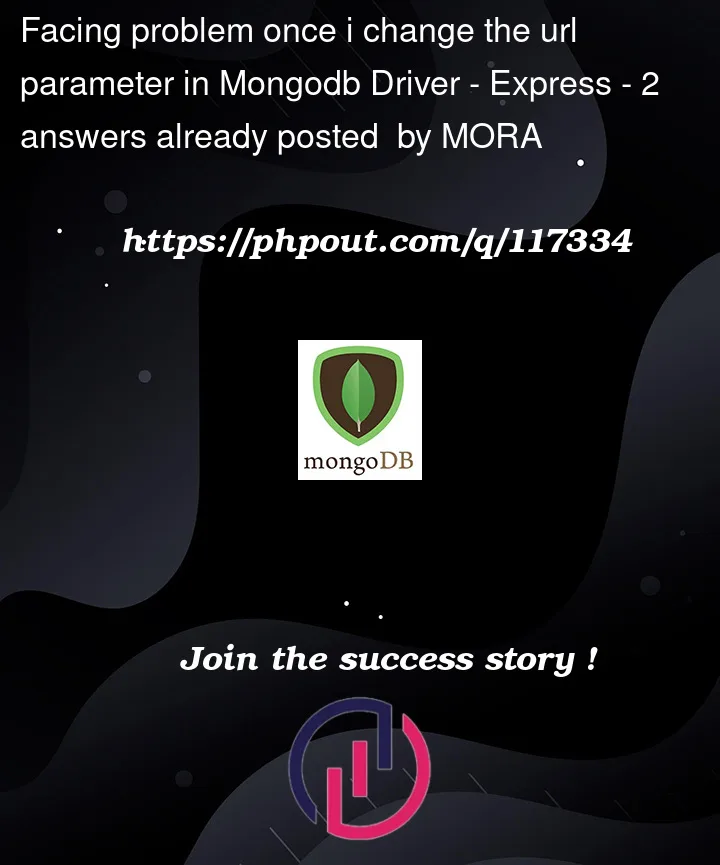I have a model called Product:
class Product {
constructor(title, price, description, imageUrl) {
this.title = title;
this.price = price;
this.description = description;
this.imageUrl = imageUrl;
}
save() {
const db = getDb();
return db.collection("products").insertOne(this)
.catch(error => dbDebugger(error));
}
static fetchById(productId) {
const db = getDb();
return db.collection("products").findOne({ _id: new ObjectId(productId) })
.catch(error => dbDebugger(error.message));
}
}
and in one of my controllers i tried to find the product with the productId which will come from the url as a url parameter:
exports.getSingleProduct = (req, res) => {
const productId = req.params.id;
Product.fetchById(productId)
.then(product => {
if(!product) {
return res.redirect("404");
}
res.render("product-detail", { product, pageTitle: "Product Detail" });
})
.catch(error => dbDebugger(error));
};
and indeed everything work without no issue.
but once i change the productId from url(like appending one letter to it), i’ll see an error (even though i should be able to handle it in my controller).
BSONTypeError: Argument passed in must be a string of 12 bytes or a string of 24 hex characters or an integer
I think the error is coming from my model once i tried to convert it to ObjectId, if it is how can i fix that? and if its not then where that error is coming from?




2
Answers
Your error occurs before any async code starts and
.catch()is only used for handling rejected promises.I would recommend using
asyncfunctions instead which will treat synchronous and asynchronous failures the same wayThis error happens when you’re trying to cast a none valid value into the
ObjectId, I am not familiar withmongoosefetchById, I’m assuming it’s a custom function you or your team wrote where you cast the_idintoObjectId,My guess the code looks a little like this:
This is why when you manually corrupt the objectid string it becomes a none valid objectid, and when the casting happens it throws an error. I would personally recommend adding validation to the REST route to make sure the
param.idis actually a validObjectId.